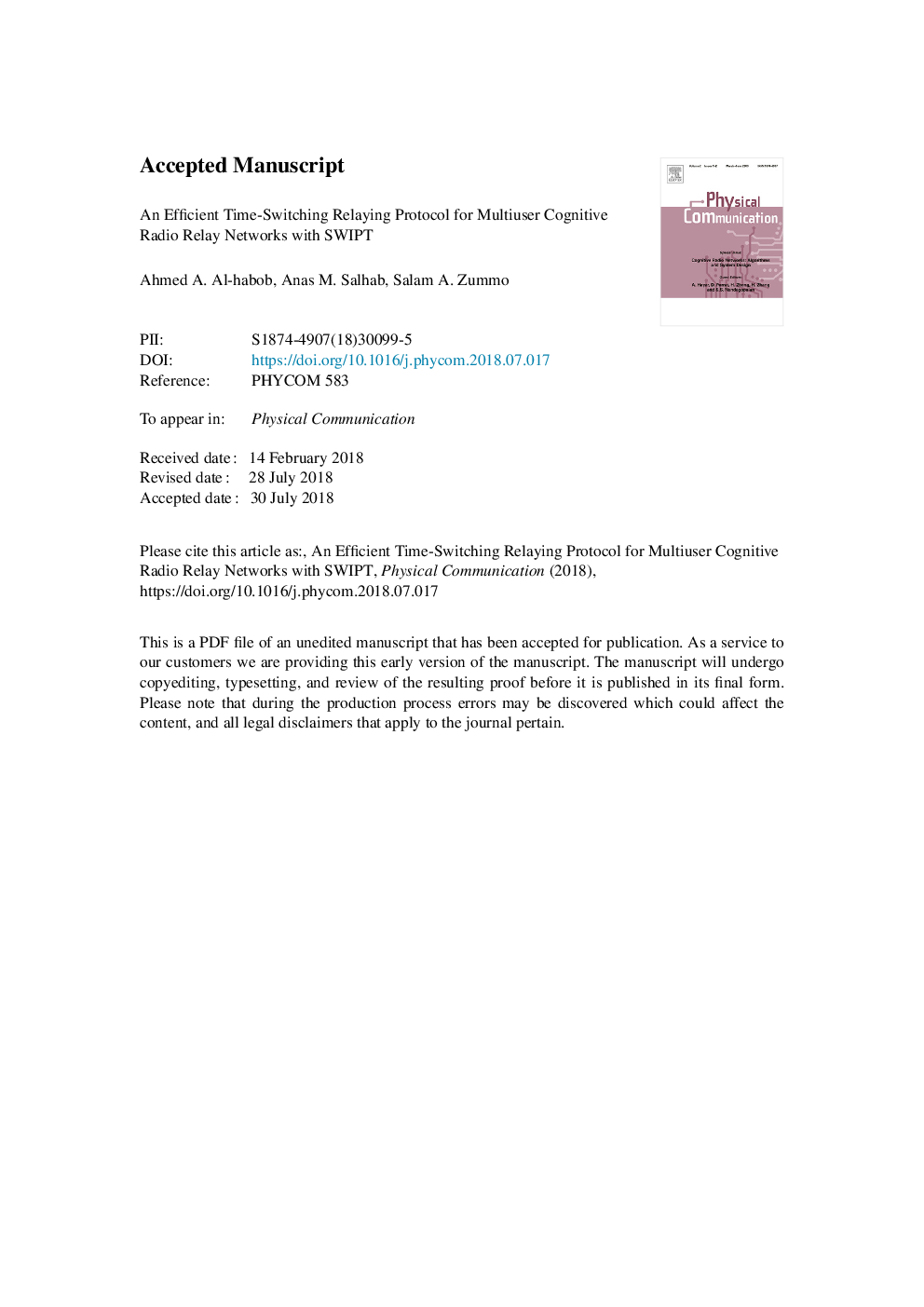| Article ID | Journal | Published Year | Pages | File Type |
|---|---|---|---|---|
| 6888928 | Physical Communication | 2018 | 26 Pages |
Abstract
In this paper, we propose a new time-switching relaying (TSR) protocol for multi-destination dual-hop underlay cognitive radio relay networks with simultaneous wireless information and power transfer (SWIPT) technique. The proposed protocol maintains the same receiver complexity of the conventional TSR protocol with the ability for implementing both of them using the same hardware. We study the performance of the proposed TSR protocol and compare it with the conventional TSR and power-splitting relaying (PSR) protocols. Unified analytical expression is derived for the outage probability, in addition to studying the performance at high signal-to-noise ratio (SNR) values where unified approximate and simple expressions for the outage probability are provided. The results show that the proposed TSR protocol outperforms the conventional TSR protocol in terms of outage probability. Also, findings illustrate that applying the SWIPT technique in multi-destination underlay cognitive relay networks results in a unity diversity order. In contrast to conventional relaying networks, results show that the best location for the relay node in SWIPT relay networks is either near the source or the destinations, but not in between.
Related Topics
Physical Sciences and Engineering
Computer Science
Computer Networks and Communications
Authors
Ahmed A. Al-habob, Anas M. Salhab, Salam A. Zummo,
